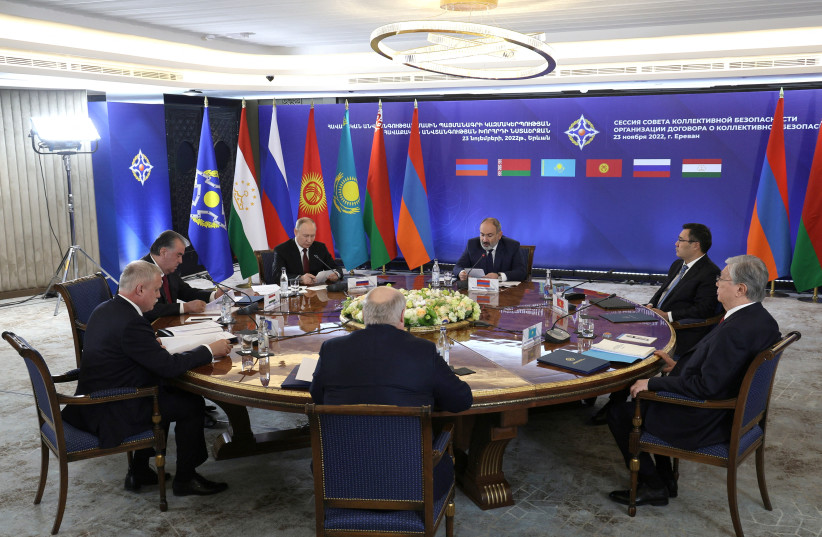The leader of Armenia vented his frustration on Wednesday at the failure of a Russian-led security alliance to come to his country's aid in the face of what he called aggression by Azerbaijan.
Prime Minister Nikol Pashinyan called into question the effectiveness of the six-nation alliance, the Collective Security Treaty Organisation (CSTO), in pointed opening remarks to a summit as Russian President Vladimir Putin looked on.
Russia, the dominant player in the CSTO, has long been the main power broker in the south Caucasus region, bordering Turkey and Iran, where Armenia and Azerbaijan have fought two major wars since the collapse of the Soviet Union in 1991.
But as Russia struggles in its nine-month-old war in Ukraine, it risks losing influence in parts of the former Soviet Union that it has long seen as its sphere of influence.

Clashes resume between Armenia and Azerbaijan
Fighting flared in September between Armenia and Azerbaijan, and the two sides said more than 200 soldiers had been killed.
"It is depressing that Armenia's membership in the CSTO did not deter Azerbaijan from aggressive actions," Pashinyan said.
"Right up to today we have not managed to reach a decision on a CSTO response to Azerbaijan’s aggression against Armenia. These facts do grave harm to the image of the CSTO both inside our country and outside its borders, and I consider this the main failure of Armenia’s chairmanship of the CSTO."
Armenia sent a direct request for assistance from the organization in September, which was met only with a promise to send observers. Pashinyan contrasted that with the alliance's rapid decision in January to send troops to another member state, Kazakhstan, to help President Kassym-Jomart Tokayev survive a wave of unrest.
Armenia and Azerbaijan blamed each other for the flare-up, the worst eruption of hostilities since 2020, when more than 6,000 were killed in a 44-day war in which Azerbaijan scored a series of major territorial victories.
Nagorno-Karabakh enclave the center of attention
The two countries have been wrangling for decades over Nagorno-Karabakh, an enclave internationally recognized as part of Azerbaijan but largely controlled by the majority ethnic Armenian population, with support from Yerevan.
Russia sent 1,960 peacekeeping troops to the area under a 2020 ceasefire deal but has made little apparent progress in getting the two sides to resolve issues including border demarcation and the legal status of Nagorno-Karabakh and the ethnic Armenians who live there.
Azerbaijan enjoys backing from Turkey and is not a member of the CSTO, which comprises Belarus, Kazakhstan, Kyrgyzstan and Tajikistan as well as Russia and Armenia.
